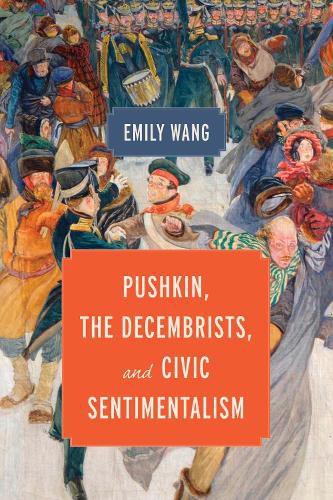Readings Newsletter
Become a Readings Member to make your shopping experience even easier.
Sign in or sign up for free!
You’re not far away from qualifying for FREE standard shipping within Australia
You’ve qualified for FREE standard shipping within Australia
The cart is loading…






This title is printed to order. This book may have been self-published. If so, we cannot guarantee the quality of the content. In the main most books will have gone through the editing process however some may not. We therefore suggest that you be aware of this before ordering this book. If in doubt check either the author or publisher’s details as we are unable to accept any returns unless they are faulty. Please contact us if you have any questions.
In December 1825, a group of liberal aristocrats, officers, and intelligentsia mounted a coup against the tsarist government of Russia. Inspired partially by the democratic revolutions in the United States and France, the Decembrist movement was unsuccessful; however, it led Russia's civil society to new avenues of aspiration and had a lasting impact on Russian culture and politics. Many writers and thinkers belonged to the conspiracy while others, including the poet Alexander Pushkin, were loosely or ambiguously affiliated. While the Decembrist movement and Pushkin's involvement has been well covered by historians, Emily Wang takes a novel approach, examining the emotional and literary motivations behind the movement and the dramatic, failed coup.
Through careful readings of the literature of Pushkin and others active in the northern branch of the Decembrist movement, such as Kondraty Ryleev, Wilhelm KUEchelbecker, and Fyodor Glinka, Wang traces the development of "emotional communities" among the members and adjacent writers. This book illuminates what Wang terms "civic sentimentalism": the belief that cultivating noble sentiments on an individual level was the key to liberal progress for Russian society, a core part of Decembrist ideology that constituted a key difference from their thought and Pushkin's. The emotional program for Decembrist community members was, in other ways, a civic program for Russia as a whole, one that they strove to enact by any means necessary.
$9.00 standard shipping within Australia
FREE standard shipping within Australia for orders over $100.00
Express & International shipping calculated at checkout
This title is printed to order. This book may have been self-published. If so, we cannot guarantee the quality of the content. In the main most books will have gone through the editing process however some may not. We therefore suggest that you be aware of this before ordering this book. If in doubt check either the author or publisher’s details as we are unable to accept any returns unless they are faulty. Please contact us if you have any questions.
In December 1825, a group of liberal aristocrats, officers, and intelligentsia mounted a coup against the tsarist government of Russia. Inspired partially by the democratic revolutions in the United States and France, the Decembrist movement was unsuccessful; however, it led Russia's civil society to new avenues of aspiration and had a lasting impact on Russian culture and politics. Many writers and thinkers belonged to the conspiracy while others, including the poet Alexander Pushkin, were loosely or ambiguously affiliated. While the Decembrist movement and Pushkin's involvement has been well covered by historians, Emily Wang takes a novel approach, examining the emotional and literary motivations behind the movement and the dramatic, failed coup.
Through careful readings of the literature of Pushkin and others active in the northern branch of the Decembrist movement, such as Kondraty Ryleev, Wilhelm KUEchelbecker, and Fyodor Glinka, Wang traces the development of "emotional communities" among the members and adjacent writers. This book illuminates what Wang terms "civic sentimentalism": the belief that cultivating noble sentiments on an individual level was the key to liberal progress for Russian society, a core part of Decembrist ideology that constituted a key difference from their thought and Pushkin's. The emotional program for Decembrist community members was, in other ways, a civic program for Russia as a whole, one that they strove to enact by any means necessary.